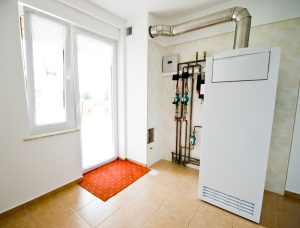Boilers are known for their durability and reliable home heating, but even the highest-quality systems have a finite lifespan. If your home is warmed by a boiler, understanding how long it should last—and recognizing when it’s time for a replacement—can help you avoid sudden breakdowns, uncomfortable winters, and inefficient energy use.
A well-maintained boiler can serve you faithfully for years, but eventually, every system reaches the point where repairs are no longer the best option. Is it time for boiler replacement in Evanston, IL?
How Long Do Boilers Last?
Most residential boilers are built to last between 15 and 30 years, depending on the type, brand, and how well they are maintained. Cast iron boilers, in particular, have a reputation for longevity, while more modern high-efficiency condensing boilers may have slightly shorter lifespans due to their more complex components. However, consistent care can make a major difference.
Why Maintenance Matters
Routine maintenance is critical for prolonging your boiler’s life. Annual service checks by a licensed technician help ensure that all parts are operating correctly, prevent sediment buildup in the heat exchanger, and catch minor issues before they become major problems. During a maintenance visit, technicians can also check for gas or water leaks, test the system’s pressure and safety valves, and ensure the boiler is running efficiently. This not only protects your investment but also improves performance and lowers heating costs.
Signs It’s Time for a Replacement
Even with regular maintenance, a time will come when your boiler simply can’t keep up. Here are a few red flags that suggest it may be time to consider a new system:
- Age – If your boiler is over 20 years old, it may be operating at a fraction of its original efficiency.
- Rising Energy Bills – Older boilers often require more fuel to produce the same level of heat.
- Frequent Repairs – If you’re calling for boiler service more than once a season, it might be more cost-effective to invest in a new unit.
- Uneven Heating – Hot and cold spots throughout your home can indicate your boiler is no longer distributing heat properly.
- Leaks or Corrosion – Water leaks or visible rust on the unit are serious warning signs.
- Strange Noises – Banging, clunking, or whistling sounds can indicate internal wear or mineral buildup.
Benefits of Upgrading to a New Boiler
Replacing your outdated boiler isn’t just about avoiding a breakdown—it’s also an opportunity to improve your home comfort and reduce your utility bills. Modern boilers are significantly more energy efficient, with many models reaching up to 95% AFUE (Annual Fuel Utilization Efficiency). That means less fuel is wasted and more heat makes it into your home.
In addition to improved efficiency, a new boiler offers more consistent heating, quieter operation, and advanced features like smart thermostat compatibility and modulating burners that adjust to your home’s heat demands. Plus, many new systems come with manufacturer warranties for added peace of mind.
If your current boiler is showing signs of age, don’t wait for a breakdown. Schedule a boiler inspection today and explore your replacement options. A new, energy-efficient system can keep you warm and worry-free for many winters to come.
Contact ServiceMax with any questions about your heating system.
